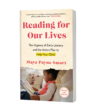Pronouns just aren’t what they used to be. Apparently, new uses of the word they sent people to the dictionary in droves in 2019. Online searches for the word spiked 313% from the year before. And the upsurge in curiosity about the 600-year-old word lead dictionary giant Merriam-Webster to name they the word of the year.
We’ve long thought of they as referring to groups of people, animals, or things. Or even (though more recently) to singular people if their identities aren’t known or specified. For example, “the person who answered the phone said they didn’t know when the homeowner would be available.”
New to the scene is using they to refer to an individual person whose gender identity is nonbinary or unknown. The usage bubbled up from personal prerogative to the media to professional organizations. “The American Psychological Association now recommends that singular they be preferred in professional writing over he or she when the reference is to a person whose gender is unknown or to a person who prefers they,” dictionary editor Peter Sokolowski said. “It’s also increasingly common to see they as a person’s preferred pronoun in Twitter bios, email signatures, and conference name tags.
Merriam-Webster added this nonbinary sense of the word to its dictionary in September. And chose an excerpt from a New York Times article to illustrate the usage. “They had adopted their gender-neutral name a few years ago, when they began to consciously identify as nonbinary—that is, neither male nor female,” journalist Amy Harmon wrote. “They were in their late 20s, working as an event planner, applying to graduate school.”
So why should we care? Because words matter. The language we use to express ourselves and learn from others demands attention in thought and use. In this case, the care with which we use the word they speaks volumes about our willingness to accept people on the terms they’ve chosen. When we call people by the pronouns they prefer, we use language in the service of human connection.
Perhaps pronouns aren’t what they used to be because we are more complex than we once acknowledged. Maybe our language is evolving to reflect greater understanding—and acceptance.
Have you noticed an uptick in new uses of the word they? Did you look it up in the dictionary to check for new insights or understanding? Can you think of other words that are changing in meaning or use?
Sources and Further Reading
https://www.merriam-webster.com/dictionary/they


